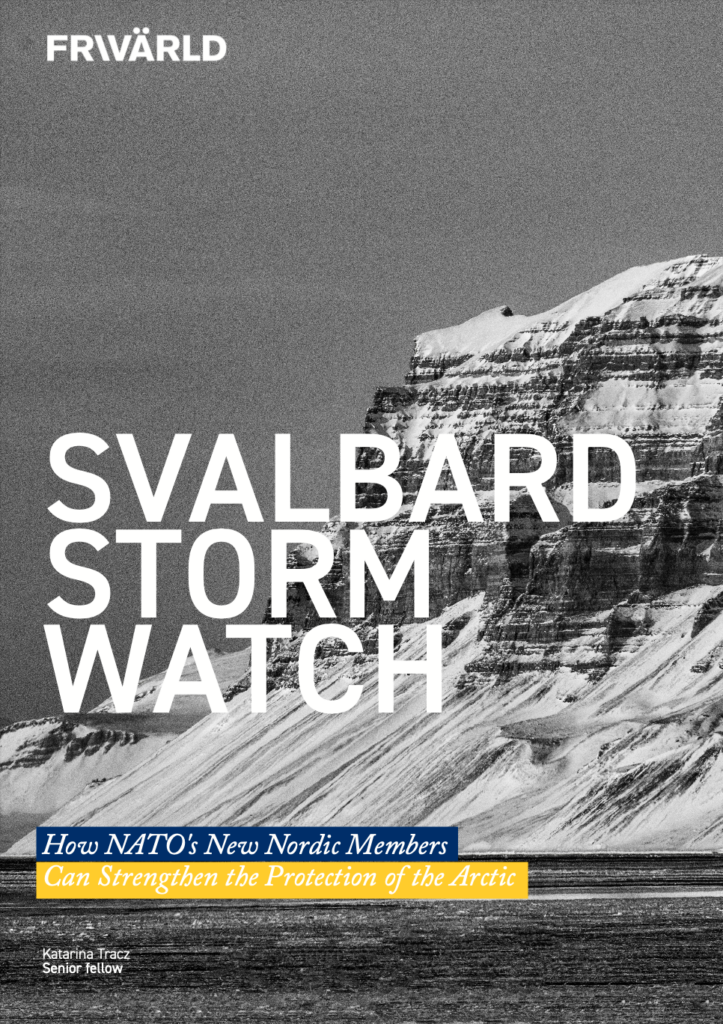In times of shifting global power dynamics and intensified state rivalry, the Arctic, a region that is warming faster than any other place on Earth and with significant amounts of natural resources, is gaining ever more attention. Especially the archipelago Svalbard in the region has gained particular geopolitical and strategic importance. Svalbard’s unique legal status permits both permanent Russian settlements and Russian business operations in the archipelago. In many ways, events on and around Svalbard are thus a case in point for relations between Russia and NATO in the Arctic at large.
The briefing paper Svalbard Storm Watch – How NATO’s New Nordic Members Can Strengthen the Protection of the Arctic, by senior fellow Katarina Tracz, examines Russian activity on and around Svalbard and situates it within today’s broader geopolitical landscape. It analyses the implications of Russia’s intensified aggression on Svalbard on Sweden and Finland in particular and offers policy recommendations on how these two new NATO members can adapt to the new security situation in the Arctic and contribute to the Alliance’s defense there.
